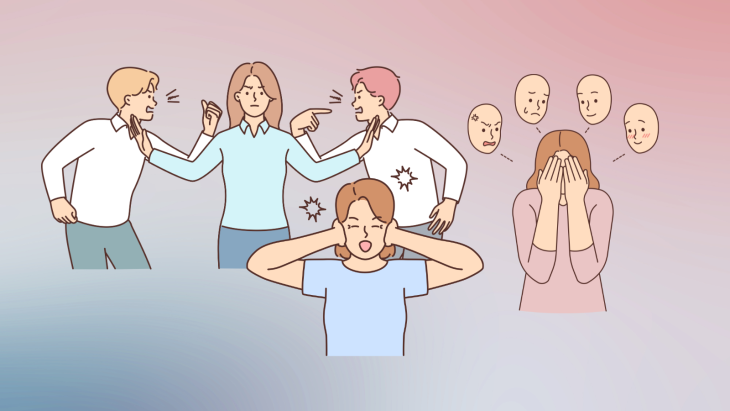Recent Posts
- The Anxious Generation. What is causing Gen Z's mental health crisis?
- Do you have to play games to make relationships work?
- Can a Therapist Find love? The Dating Life of a Therapist.
- Can a Therapist Benefit from Therapy?
- My kid's schedule is fully packed with after-school activities everyday. How much is too much?
Most Popular
I know conflicts cannot be avoided, but they just stress me out! What are some effective conflict resolution strategies?

Face to face with a conflict, do you find yourself unconsciously gravitating towards avoidance? Or are you usually the type that addresses and resolves conflict head-on? Perhaps, do you lean more on finding a way to compromise or to adjust?
It would seem that in most cases, many of us do not intentionally choose a conflict resolution style, but we are influenced by our emotions, thus reacting according to how we feel at the moment of conflict. The context and circumstances surrounding the conflict and what we learned about conflict resolution as children also affect the strategies we use during conflict as adults.
Why is there a need for effective conflict resolution?
Inevitable. Conflicts will always be present in relationships because we are unique individuals with our own view of the world, needs, and expectations. However, the style and strategies we use to address conflict have a direct influence on the quality of our mental health and our relationships.
Styles and strategies to address conflict
Improving our knowledge and skills in conflict resolution and intentionally practicing them allow us to take more control of our emotions, develop our communication style, and direct our efforts to building better relationships.
- Be a more active and empathetic listener.
A conflict happens between us and a co-worker. Going into the conversation with the intention to listen actively and to apply more empathy matters. It allows us to gather information and better understand different perspectives before making choices. When we are more empathetic, the other party feels that they are heard, that you are pursuing connection and trust is fostered.
On the other hand, having a mindset of competing against the other party to see who “wins the battle” often leads to aggression. And it might lead to hostility such as complaining, angry expressions of views, treats and even harassment. The environment becomes volatile and stressful.
Ask for more information and check differing perceptions so that you can make a more informed decision. Also adapting a more “win/win” perspective in creating solutions shows that we care for ourselves and the other party.
- Increase collaboration.
Improving your skill in collaborating to come up with solutions that are agreeable to both parties requires effective communication and leads to strengthening the relationship between you and the other party. This is the strategy that is the most advantageous, yet it requires more time.
Collaboration tips:
- View the challenge as a win-win situation.
- Be flexible and open to multiple suggestions.
- Judge the situation based on facts and not on prejudice against people.
- Gather information and arrive at what both parties really need.
- Listen to and gather feedback.
- Emotions are natural, but manage them to avoid escalation.
There is a tendency to either be aggressive or passive-aggressive when emotions are not managed during a conflict.
One conflict resolution strategy used is compromising. In essence, compromising might mean we lose the things we want in favor of the other party’s win. Often, it is a temporary solution and the root of the conflict is still there.
When the issue is not fully resolved, future conflict might recur. But at times, when there is limited time to make a decision, or when both parties want to provide an immediate solution to a challenge to save their relationship, compromising is needed. However, both parties still have to revisit the issue in the future, become vulnerable to each other and express their needs so that they can reestablish the connection and start looking for a more long-lasting solution.
Part of becoming a responsible and high-functioning adult is growing in our conflict resolution skills. When we use the above-mentioned strategies with grace and kindness, we find that we are able to use both our mind and heart in dealing with problems, while keeping our relationships intact and even strengthening them.
Hundreds of medical careers are just one click away. Check the most recent job openings for mental health professionals and healthcare workers and build a fulfilling career in the medical field.








Comments